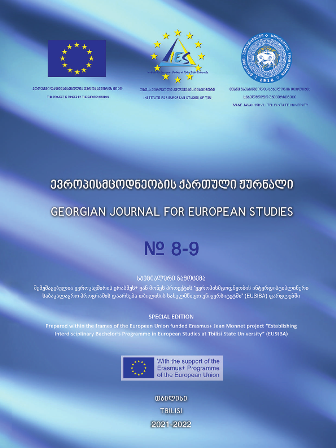SOCIAL INTEGRATION OF ETHNIC AZERBAIJANI WOMEN IN GEORGIA
Keywords:
Gender, Georgia, European integration, Social integration, Ethnic minority, IntersectionAbstract
The social integration of ethnic minorities is essential for every democratic state. For Georgia, an ethnically diverse country that sees integration into the Euro-Atlantic space as its primary political priority and follows the EU association agreement, it is crucial to protect the human rights and gender equality of minorities. From this point, a study of minority groups who are at the intersection of different identity and a group affiliation defining factors – ethnicity, religion and gender – is particularly important. This paper focuses on the social integration of Georgian Azerbaijani women, representatives of the country’s largest ethnic minority group, who are compactly settled mainly in Marneuli, Bolnisi, Dmanisi, and Gardabani municipalities of the Kvemo-Kartli region. Using data from secondary sources, this paper considers participation, knowledge of the state language, social networks, and intermarriage – the widely used dimensions of integration of minorities in a society – and finds that the integration level of ethnic Azerbaijani women in Georgian society is low. The endogenous and exogenous factors responsible for the low integration are discussed. The paper concludes that the social integration is a two-way process and requires mutual efforts both by the majority society and the group under study.


